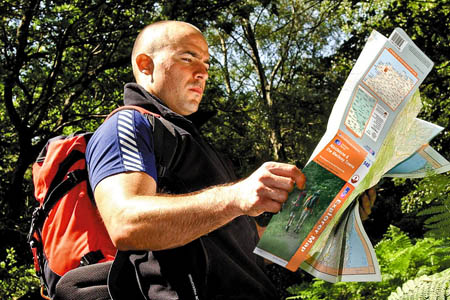
Ordnance Survey mapping looks set for a big shake-up following the Prime Ministers announcement
Ordnance Survey mapping will be free from 1 April.
It’s not an April Fool’s joke, but the first indication from the Prime Minister that the Government has decided to liberalise OS data from next month. Gordon Brown announced the plans this morning in a speech outlining his plans for digital economy growth.
The announcement means Downing Street has decided to reject the option to continue with OS’s current business model, in which private-sector companies pay more for data than public bodies.
The recent consultation on the future of OS data – which includes mapping – which closed last week, proposed three options: the status quo; freeing large-scale and small-scale mapping; and a staged move to free mapping.
Gordon Brown’s announcement this morning is a clear indication that he has rejected the first option.
The Prime Minister said: “Following the strong support in our recent consultation, I can confirm that from 1 April, we will be making a substantial package of information held by Ordnance Survey freely available to the public, without restrictions on re-use.
“Further details on the package and Government’s response to the consultation will be published by the end of March.
“The web and the internet offer us a chance to reinvent ‘deliberative democracy’ for the modern age.
“Digital government will help open the door to new ways of enabling people to influence and even decide public policy. And it will give them better and more comprehensive access to the information they need to make informed choices.

Gordon Brown: free OS data from 1 April. Photo: World Economic Forum
“Instead of a gamble on crude laissez-faire economic theories we need a new industrial strategy for this country founded on an open partnership of business, people and government – doing all we can to support enterprise as the engine of economic growth and unleashing the entrepreneurial, innovative and dynamic talents we have in Britain.”
He said these sectors had the potential to be world leaders for Britain.
“It means where necessary, investing now to provide the conditions in which private enterprise in these sectors can thrive,” Mr Brown said.
“Underpinning the digital transformation that we are likely to see over the coming decade is the creation of the next generation of the web – what is called the semantic web, or the web of linked data.
“This next generation web is a simple concept, but I believe it has the potential to be just as revolutionary – just as disruptive to existing business and organisational models – as the web was itself, moving us from a web of managing documents and files to a web of managing data and information – and thus opening up the possibility of by-passing current digital bottlenecks and getting direct answers to direct requests for data and information.
“It will change fundamentally the way we conduct business – with new enterprises by-passing traditional media communications and governmental organisations: new enterprises spun off from the new data, information and knowledge that flows more freely.”
He also announced the setting up of an Institute of Web Science, under the leadership of Sir Tim Berners-Lee, the British inventor of the worldwide web, and the leading web science expert Professor Nigel Shadbolt.
grough has pledged to incorporate a free model into its mapping and route-planning system if OS data becomes free. It currently has to pay licence fees to OS for the mapping tiles and other data in its grough route system. The company will finalise work on its free system once the Government has announced the full details of which data will be provided free.
Maurice Pullin
30 March 2010Have been listening to fine words from politicians for 60 years now, especially before elections so hope G.B. will forgive me for being cynical.
Good idea though, but who will pay for it, one guess will be enough.